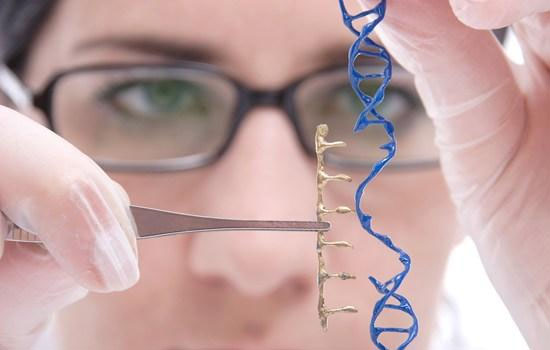Francisco Mojica was not the first to discover CRISPR, but he may be the first scientist to be fascinated by it. He remembered the day of 1992 when he first saw the microbial immune system that was about to open the biotechnology revolution. At the time he was reviewing the genomic sequence data of the halophilic microorganism Haloferax mediterranei and noted 14 unusual DNA sequences, each 30 bases long. These sequences are roughly identical, positive and negative, repeated every 35 bases or so. Soon, he found more such sequences. Mojica is fascinated by this as a research focus of his research at the University of Alicante, Spain.
This is an unusual decision and Mojica Labs has lacked funding for years. At various conferences, Mojica “catch†every important person you can find and ask them what they think about these strange little repeats. But they warned Mojica, "Don't care too much about these repetitions. There are many repetitions in many organisms that we have known many years ago, but it's still not clear how many of them are useful."
Nowadays, scientists are becoming more aware of this component, named CRISPR (short palindrome repeats in clustered regular intervals), and use it as a research tool, although most biomedical researchers are even more The focus is on how CRISPR-Cas9 can be used to edit genes, but Mojica and other microbiologists still want to know some basic questions about how the system works and how it works: How did it evolve? How to influence the evolution of microorganisms? Why do some microbes have this system, while others do not? Maybe there are other unknown basic biological functions in CRISPR?

“Most of the media has focused on the CRISPR system as a technology. Of course there are good reasons for this. This is also an incredible role and opportunity we found. But at the same time, there are many interesting foundations. Biological research." Jennifer Doudna, a biologist at the University of California, Berkeley, said she was one of the first scientists to use CRISPR-Cas as a genetic editing tool.
No. 1 Where does the company come from?
The biological advantages of CRISPR-Cas are already clear. Prokaryotes, including bacteria and archaea (a class of lesser-known single-celled organisms, many of which live in extreme environments), face constant attacks by genetic aggressors. The number of viruses may be ten times greater than that of prokaryotes, and it is said to kill half of the world's bacteria every two days. Prokaryotes also exchange DNA fragments called plasmids, including parasites, which take resources from the host, and if the host tries to expel them, the body molecules force it to self-destruct. There seems to be nowhere in the world that is safe, from the soil to the ocean, to the most desolate and unsuitable places on earth, genetic intruders have always existed.
Prokaryotes have developed many weapons to cope with these threats during their evolution. For example, an enzyme used to cleave DNA at or near a particular recognition sequence. But these defenses are not sensitive, and each enzyme is programmed to recognize certain sequences and is only protected when the microbe has a copy of the correct gene. CRISPR-Cas is more dynamic, similar to the long-term immune pattern developed by human antibody infection, capable of evolving and remembering special genetic invaders.
John van der Oost, a microbiologist at Wageningen University in the Netherlands, said: "When we first heard about this hypothesis, we thought it was too complicated for simple prokaryotes."
Dietary supplements take vitamins, minerals and extracts with relatively clear structure-activity relationship as the main raw materials, and supplement the necessary nutrients and biologically active substances for the human body through oral intake to achieve the purpose of improving the body's health and reducing the risk of disease. Available in concentrated forms such as doses or capsules. Foods in traditional form with added nutrients or biologically active substances.
Dietary supplement,New Dietary Ingredient,Dietary Supplement Product,Food Supplements
YT(Xi'an) Biochem Co., Ltd. , https://www.ytlinkherb.com